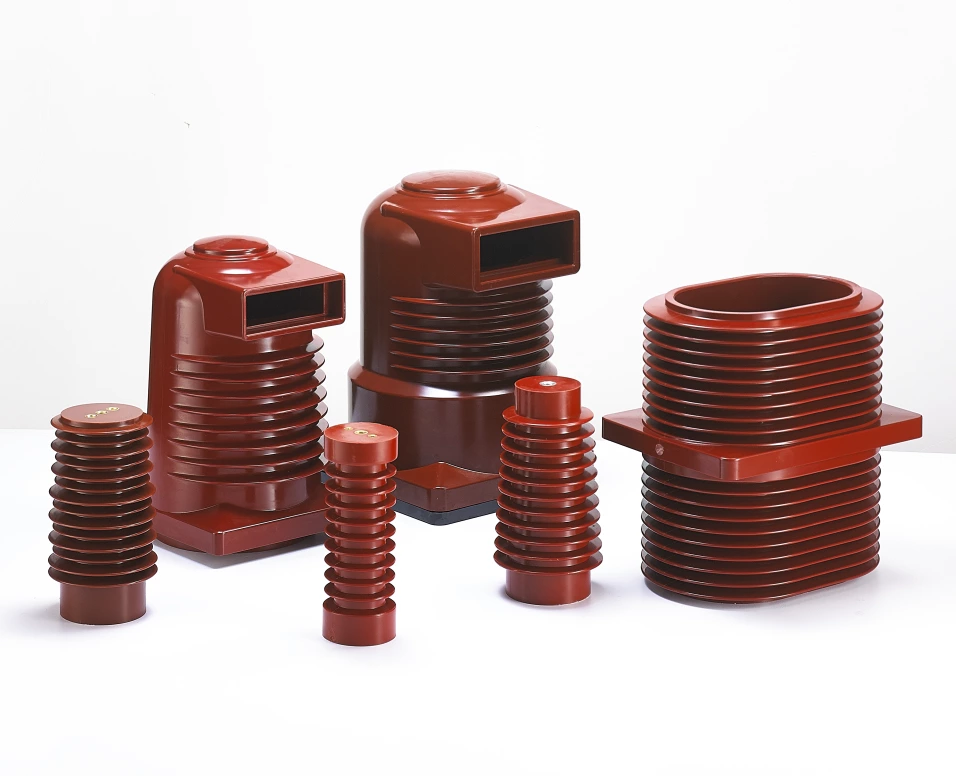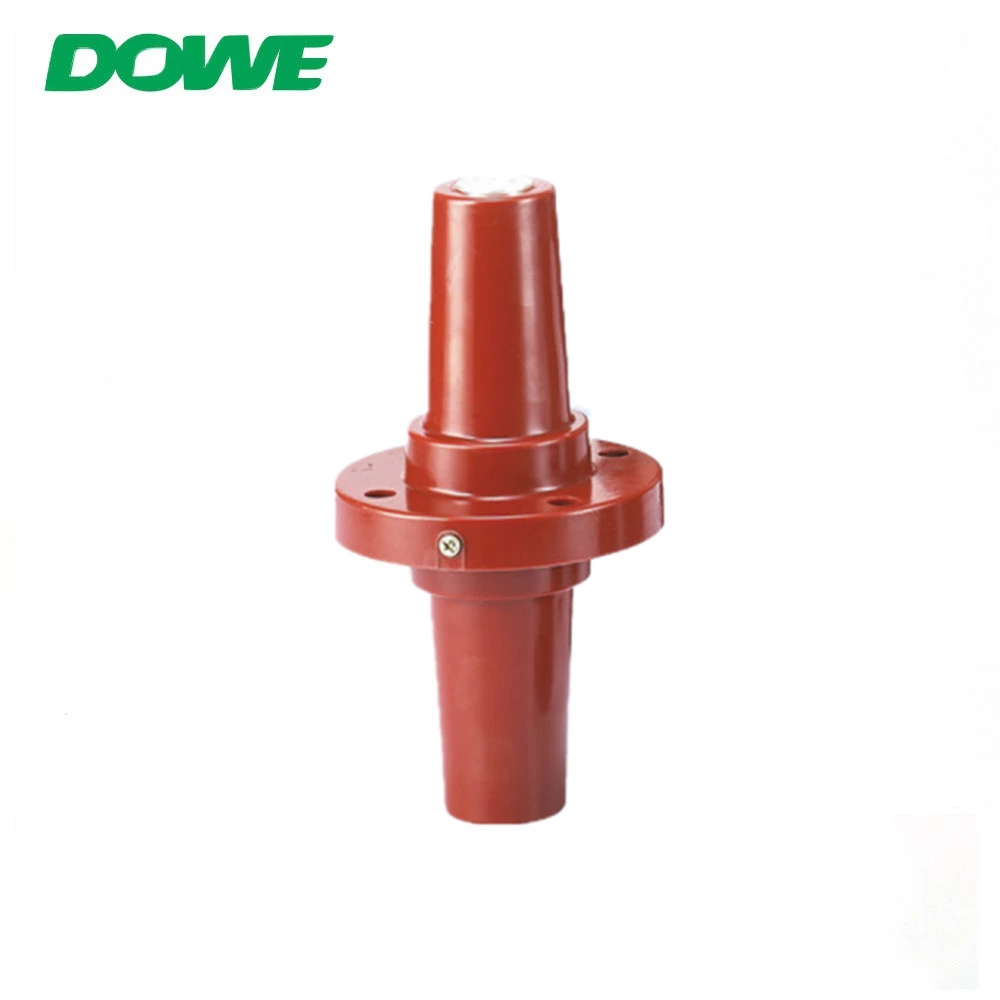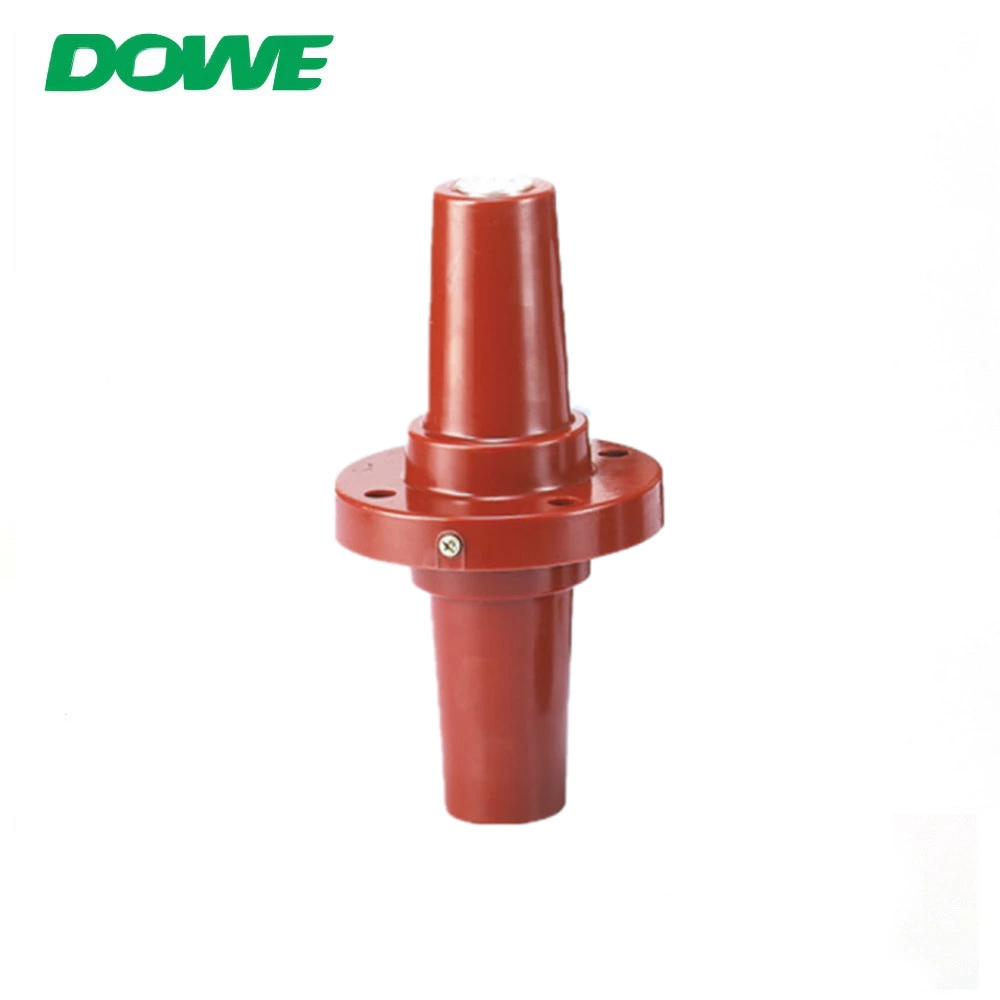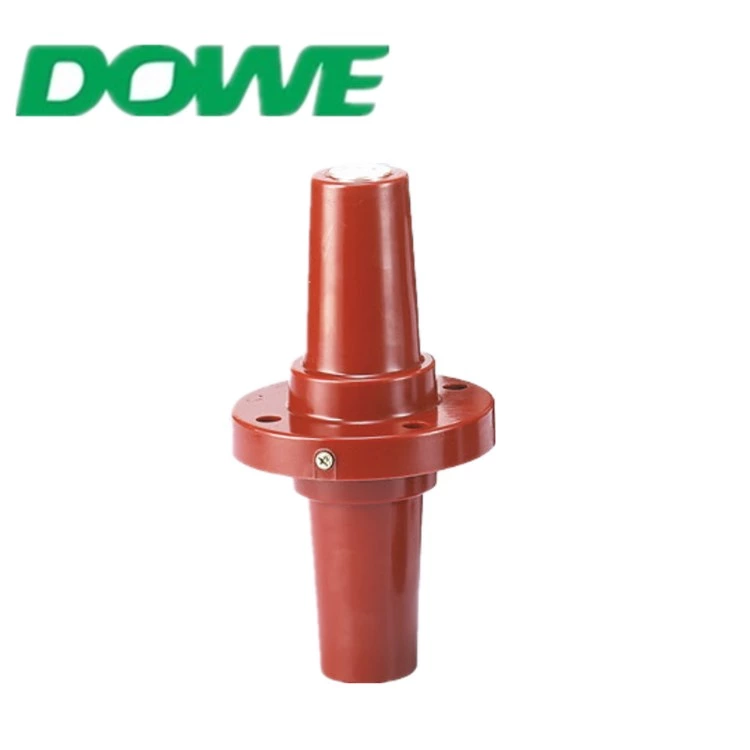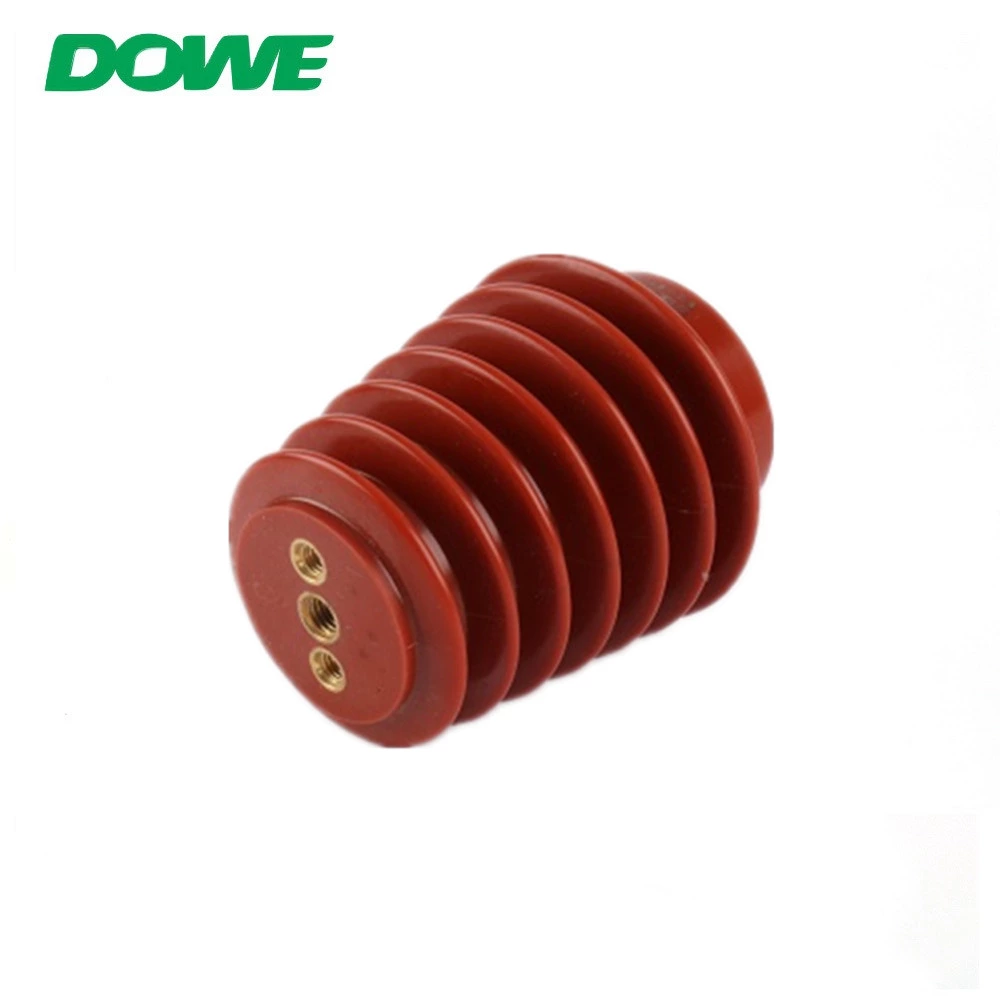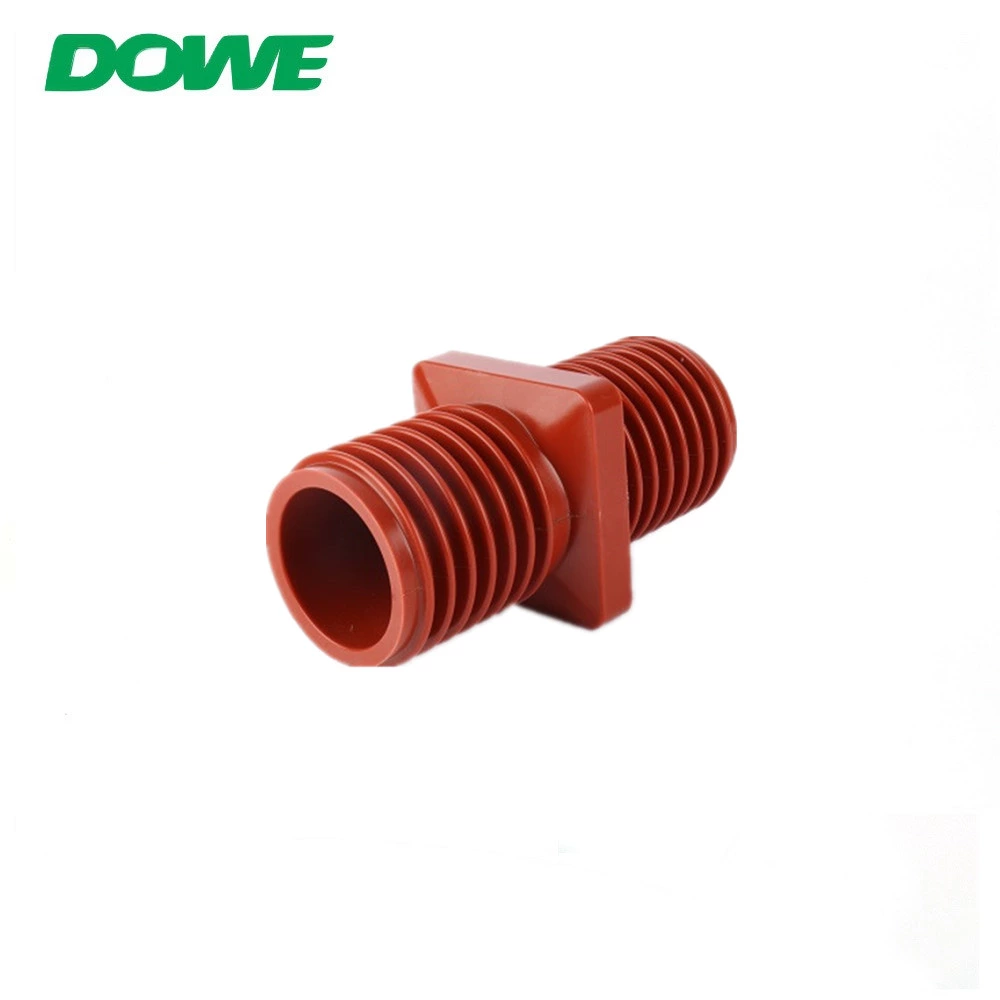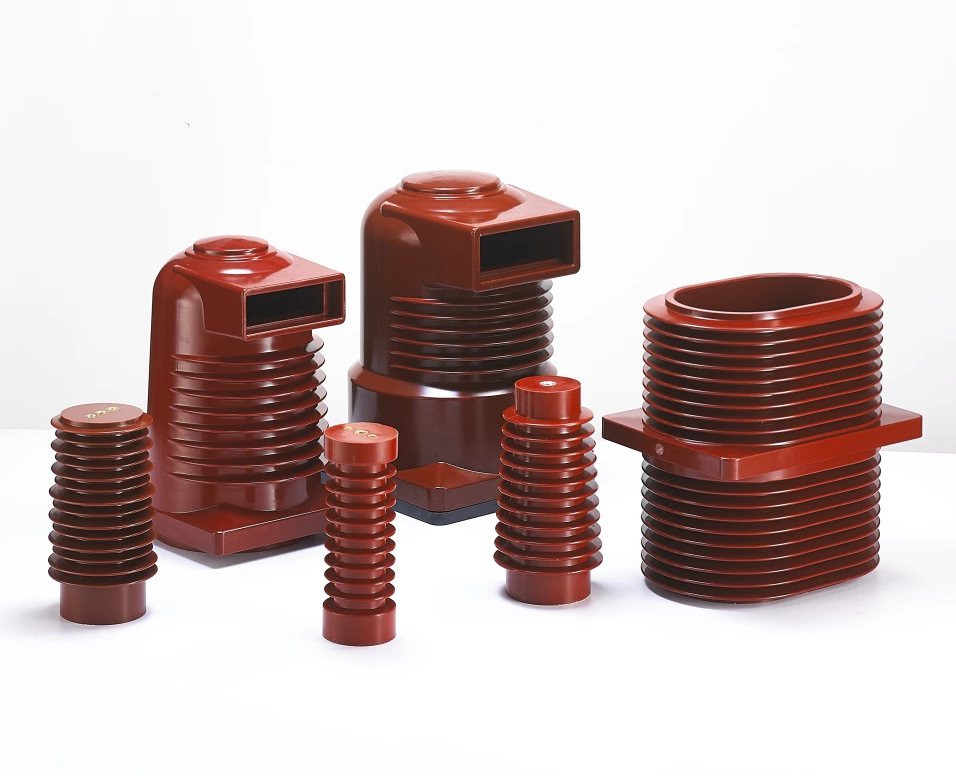What is the Role of Busbar Insulator Supports in Electrical Systems?

Electrical systems rely on a variety of components to ensure safe, efficient, and stable operation. One such critical component is the busbar insulator support. Without this simple yet essential piece of equipment, electrical systems could face disruptions, risks, and even catastrophic failures. But what exactly is the role of busbar insulator supports, and why are they so important?
In short, busbar insulator supports are crucial for maintaining electrical safety, ensuring structural integrity, and preventing electrical faults in busbar systems. These supports play a key role in isolating the busbars, providing mechanical strength, and ensuring proper alignment to reduce the risk of electrical shorts or system failure. Let’s dive deeper into how these supports fit into the broader electrical system and the unique benefits they provide.
In this post, I’ll explain what busbar insulator supports are, why they’re necessary, and how they help optimize electrical systems.
Table of contents
- What are Busbar Insulator Supports?
- Why Are Busbar Insulator Supports Essential in Electrical Systems?
- How Do Busbar Insulator Supports Prevent Electrical Faults?
- What Are the Different Types of Busbar Insulator Supports?
- Conclusion
What are Busbar Insulator Supports?
Busbar insulator supports are components that physically hold busbars in place while electrically isolating them from their surrounding structures. Busbars, which are metallic conductors used to distribute electrical power within a system, need to be supported in such a way that prevents them from shorting to other conductive surfaces or experiencing mechanical stress.
In simpler terms, busbar insulator supports provide a barrier between the conductive busbars and their mounting surfaces, ensuring that the current flows properly without interference or risk of short circuits.
These supports are typically made from high-strength materials like porcelain1, ceramic2, or polymer compounds3, all of which are excellent insulators. The design of these supports varies depending on the specific requirements of the electrical system and the environment in which it operates.

Why Are Busbar Insulator Supports Essential in Electrical Systems?
You might wonder, why exactly do we need insulator supports for busbars when they are already surrounded by the air, which is an insulator? The answer lies in the practical aspects of electrical systems.
Without proper insulator supports, busbars can easily become misaligned, leading to mechanical stress and potential short circuits. These supports not only secure the busbars in place but also ensure that they stay electrically isolated, preventing the risk of accidental electrical discharges.
For example, in high-voltage systems, busbars carry significant amounts of current. If these busbars were not properly supported and isolated, they could come into contact with other conductive parts of the system, causing electrical faults, fires, or even system-wide outages.
Benefits of Proper Busbar Insulator Supports
-
Electrical Insulation: The primary function of the insulator supports is to prevent electrical faults. By keeping busbars electrically isolated from the supporting structure, they minimize the chance of short circuits, which can lead to serious damage to equipment or even injury to personnel.
-
Mechanical Strength: Busbars can experience significant mechanical stress, especially in high-load systems. Insulator supports provide the mechanical strength needed to keep the busbars in proper alignment, reducing the risk of bending, warping, or breaking.
-
Safety: Ensuring that the busbars are isolated from surrounding conductive parts is critical for maintaining electrical safety in the system. Proper busbar insulation reduces the risk of electrical shock, arc flash, and fire hazards, which could otherwise be life-threatening.
-
Durability and Reliability: Busbar insulator supports are designed to withstand harsh environments, including extreme temperatures and moisture. They help extend the life of busbar systems by preventing wear and tear, ensuring long-term reliability.
How Do Busbar Insulator Supports Prevent Electrical Faults?
The role of busbar insulator supports is directly linked to reducing the risk of electrical faults. By keeping the busbars securely in place and isolated from other conductive surfaces, these supports help prevent short circuits4 and electrical arcing5.
Short Circuits and Arcing Risks
If a busbar is not adequately insulated, it may come into contact with other metallic parts within the electrical system. This can create a short circuit, where the electrical current bypasses the intended path, potentially causing overheating, equipment failure, and even fires.
Electrical arcing can also occur if there is insufficient insulation. Arcing happens when the electrical current jumps from one conductive surface to another through the air, creating intense heat and potentially damaging components.
How Insulator Supports Help
By ensuring that busbars are held securely in place and isolated, busbar insulator supports prevent physical movement that could cause accidental contact. They also maintain the necessary distance between the busbars and surrounding conductive materials, preventing arcing and the risks associated with it.
In addition, insulator supports help maintain the structural integrity of the busbars, especially under extreme electrical loads or environmental conditions, ensuring that the system remains safe and functional.
What Are the Different Types of Busbar Insulator Supports?
There are several types of busbar insulator supports, each designed for specific applications and environmental conditions. Here’s a breakdown of the most common types:
1. Porcelain Busbar Insulator Supports
Porcelain is a traditional material used in busbar insulator supports due to its excellent insulating properties and mechanical strength. Porcelain supports are often used in high-voltage systems and outdoor installations.
2. Polymer Busbar Insulator Supports
Polymer insulator supports are made from advanced composite materials that are lightweight and resistant to weathering. These are commonly used in modern electrical systems where high mechanical strength and resistance to environmental factors are crucial.
3. Ceramic Busbar Insulator Supports
Ceramic insulator supports offer a good balance of insulation and mechanical strength. They are used in medium to high-voltage electrical systems and are particularly effective in environments with high humidity or chemical exposure.
4. Glass Fiber Busbar Insulator Supports
Glass fiber insulators are known for their durability and resistance to corrosion. These are commonly used in industrial applications where high resistance to mechanical stress and environmental conditions is needed.
5. Epoxy Resin Busbar Insulator Supports
Epoxy resin supports are used in specialized applications, especially where space constraints are important. They offer high electrical insulation and excellent resistance to chemicals, making them ideal for certain industrial and manufacturing environments.
Conclusion
In conclusion, busbar insulator supports are critical components in electrical systems that play an important role in maintaining the safety, mechanical stability, and electrical integrity of the system. They isolate the busbars, prevent electrical faults, and ensure the long-term reliability of the electrical system. By understanding their role and importance, you can better appreciate how they contribute to the safe and efficient operation of power distribution systems.
If you’re considering upgrading your electrical infrastructure, investing in high-quality busbar insulator supports is a smart decision that will ensure long-term performance and safety.
-
Porcelain insulators are known for their durability and ability to withstand high temperatures and mechanical stress. They are widely used in high-voltage applications. ↩
-
Ceramic materials provide a balance between strength and electrical insulation, often used in environments where high humidity or chemical exposure is common. ↩
-
Polymer compounds such as composite materials are gaining popularity due to their lightweight and resistant properties in modern electrical systems. ↩
-
A short circuit occurs when electricity flows along an unintended path, potentially damaging electrical components and causing fire hazards. ↩
-
Electrical arcing is the phenomenon where electricity jumps from one conductor to another, generating heat that can damage the system. ↩

